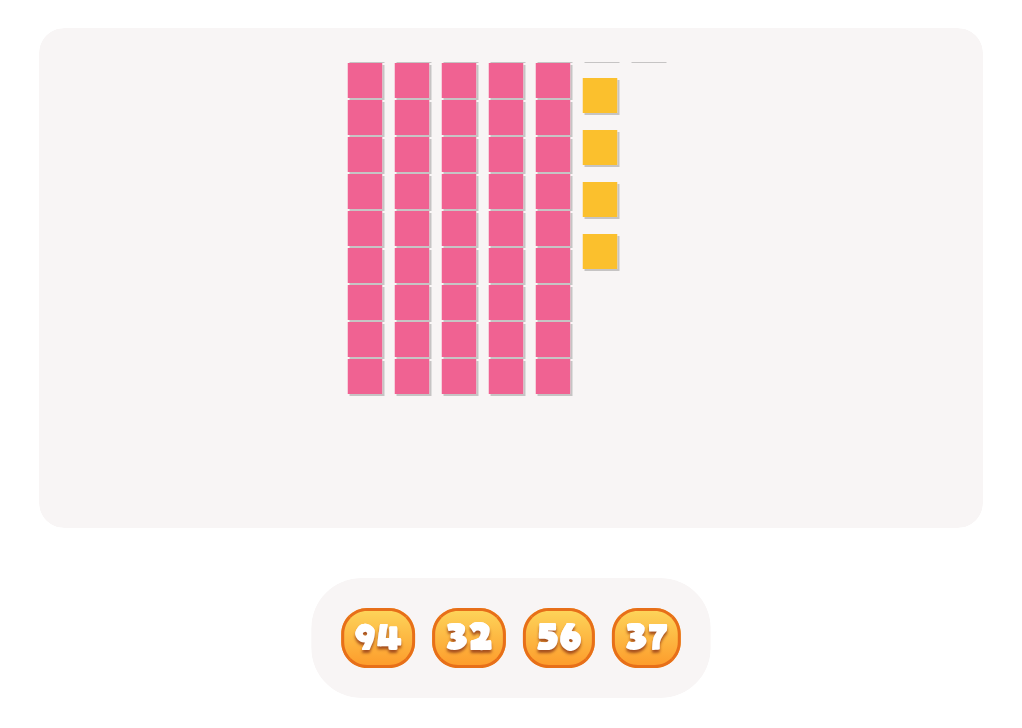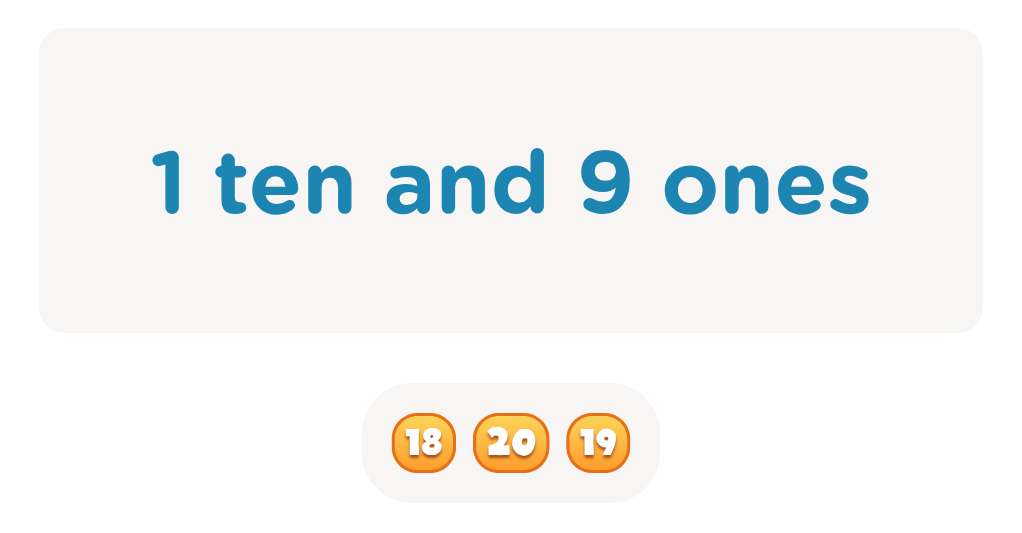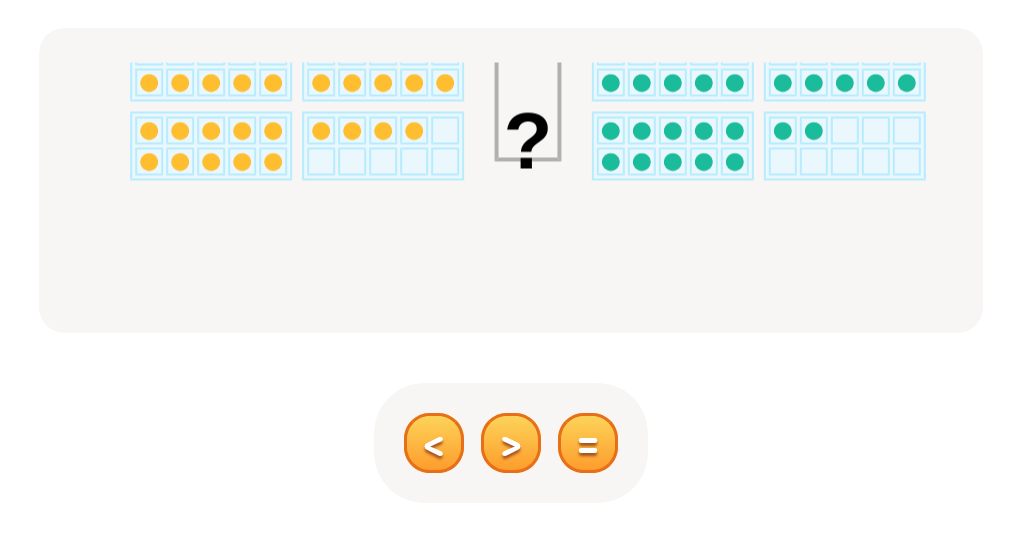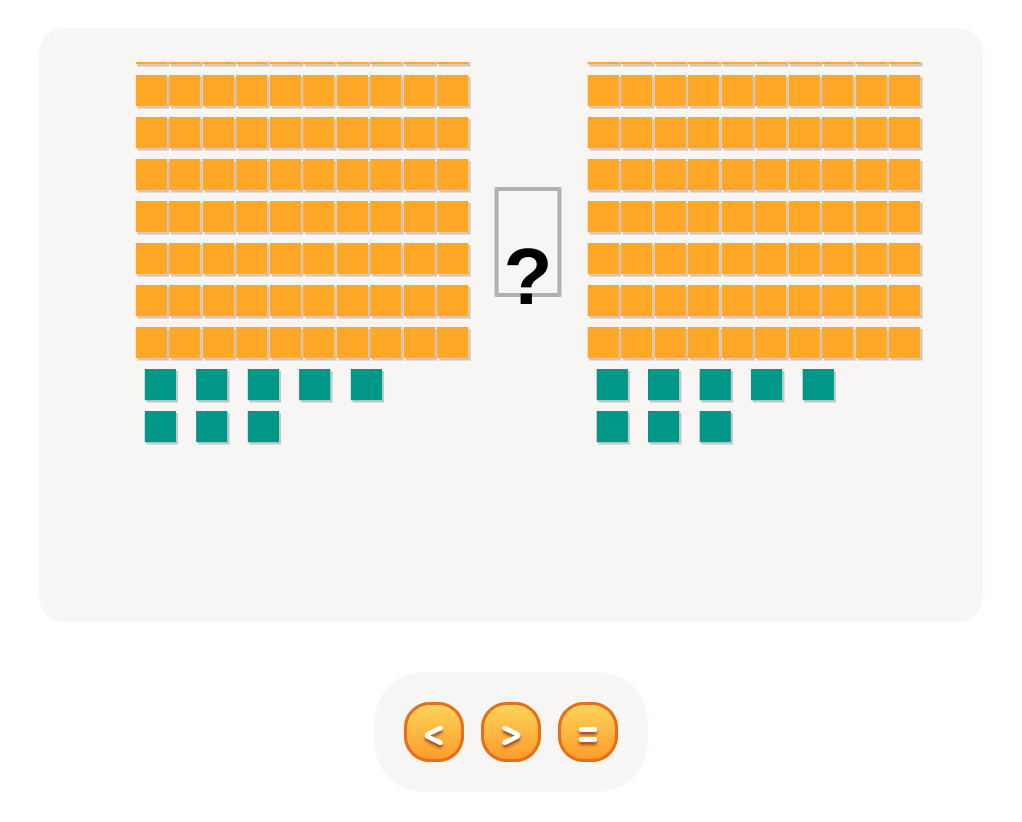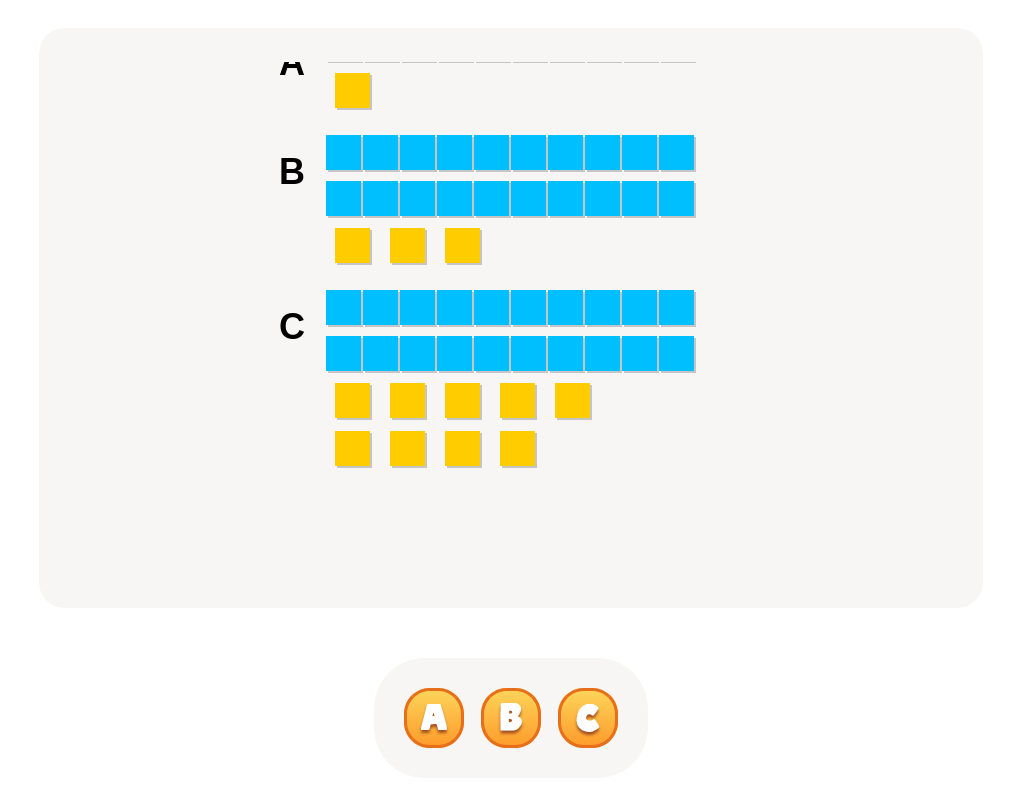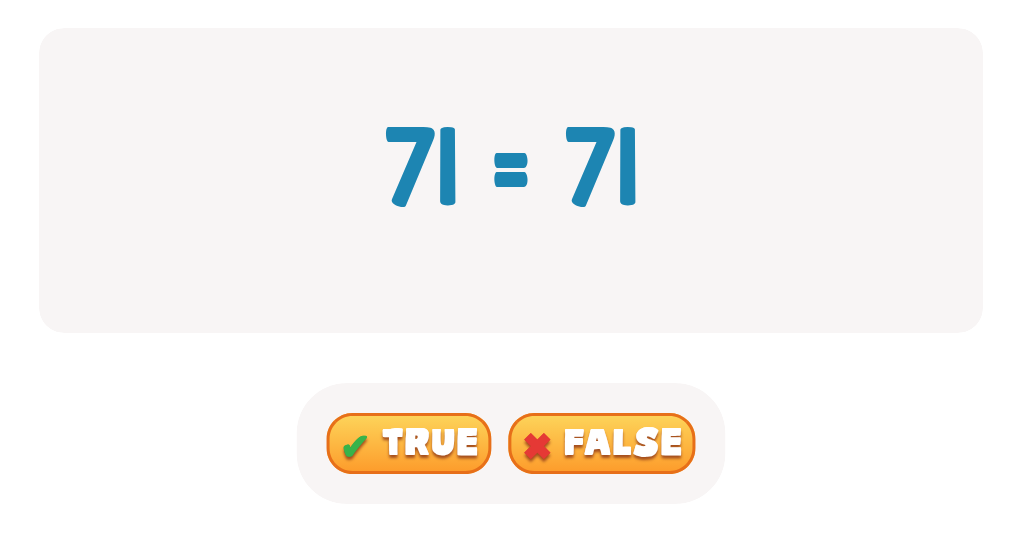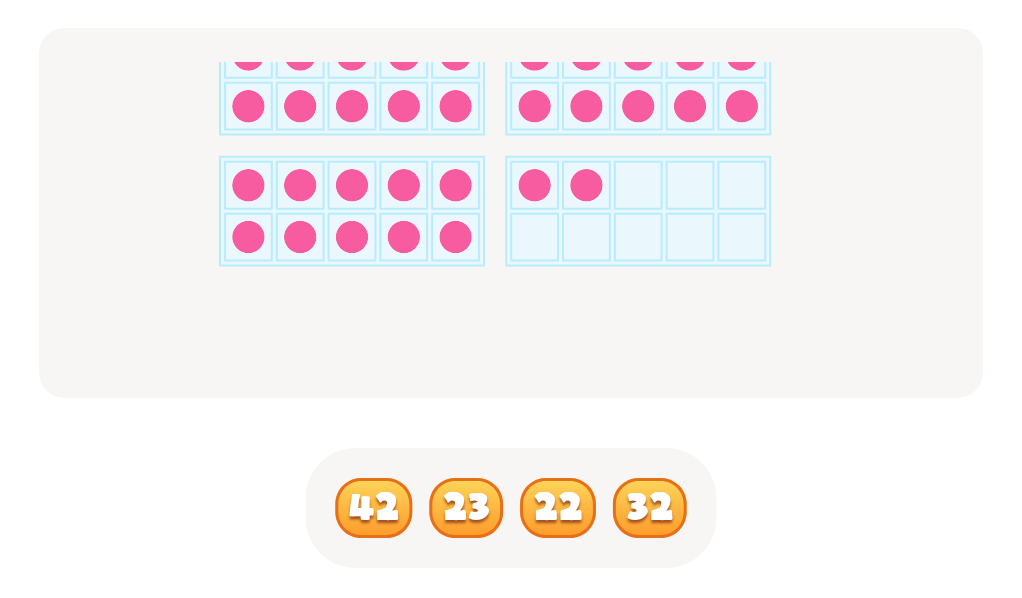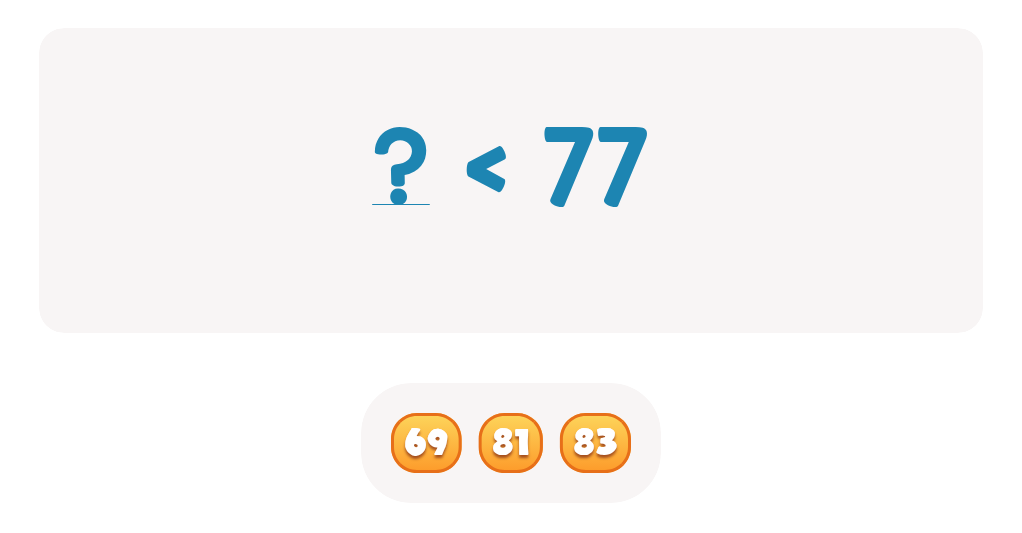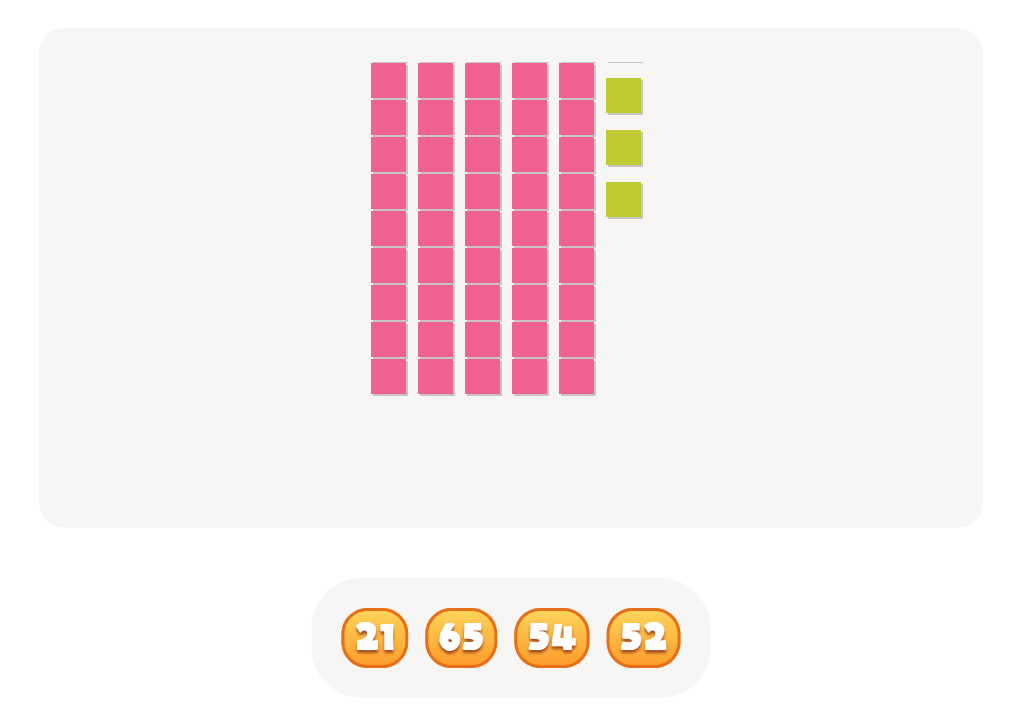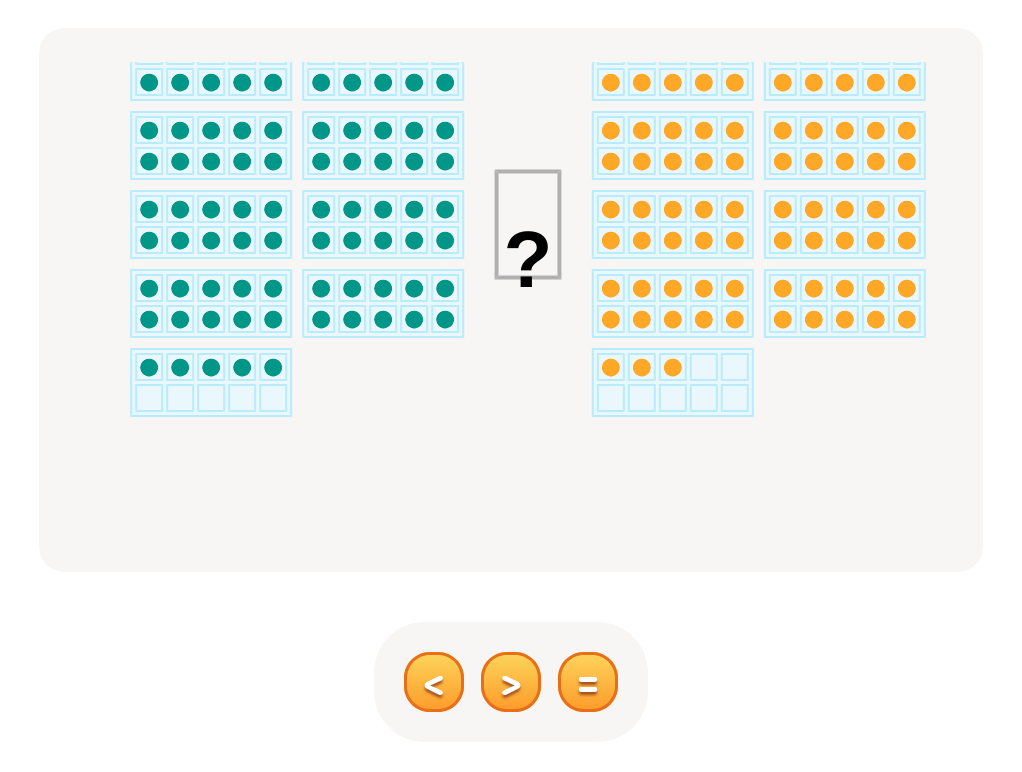Place Value Worksheets for Ages 3-9
74 filtered results
-
From - To
Boost your child's math skills with our engaging "Place Value Worksheets for Ages 3-9." Perfectly crafted for early learners, these worksheets make mastering place value fun and interactive. From understanding single digits to grasping hundreds, each worksheet offers activities to enhance numerical comprehension. Tailored for kids aged 3-9, our printable resources cater to various learning levels and help build a strong foundation in math. Join us at Kids Academy and watch your child’s confidence and proficiency grow with every completed worksheet. Make learning math an enjoyable adventure with our expert-designed place value exercises!
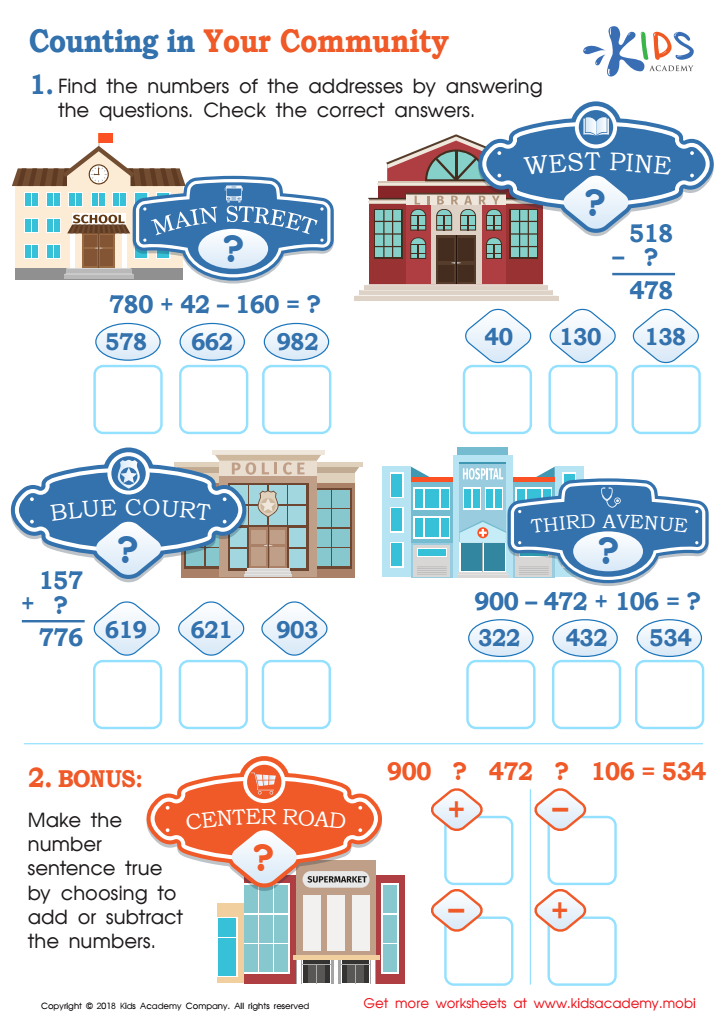

Counting in Your Community Worksheet
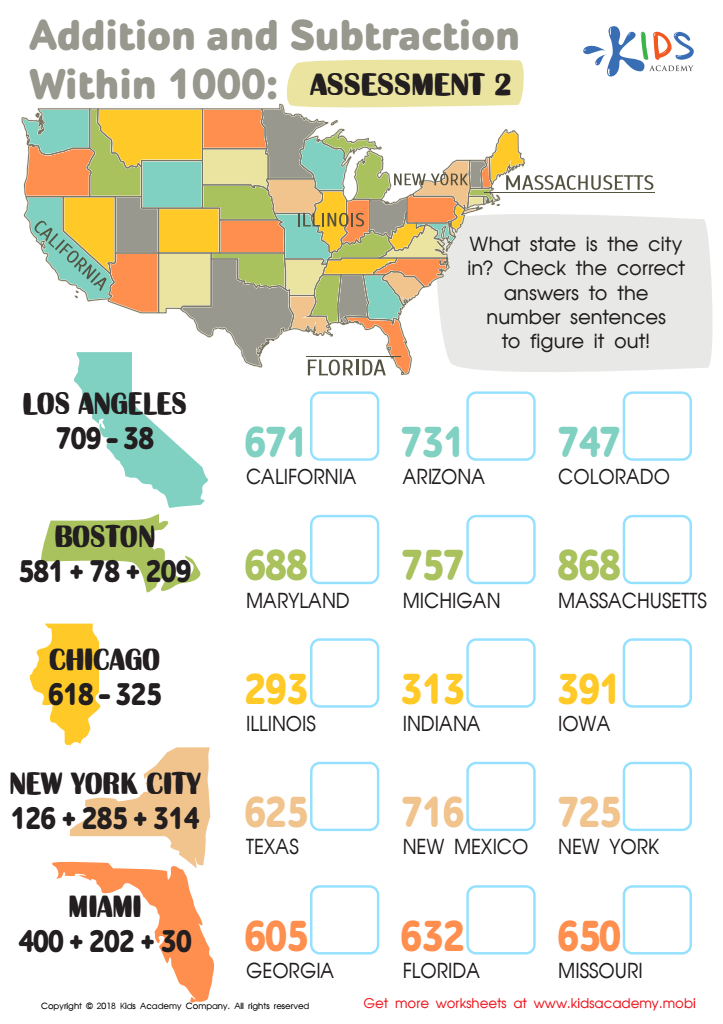

Addition and Subtraction Within 1000: Assessment 2 Worksheet
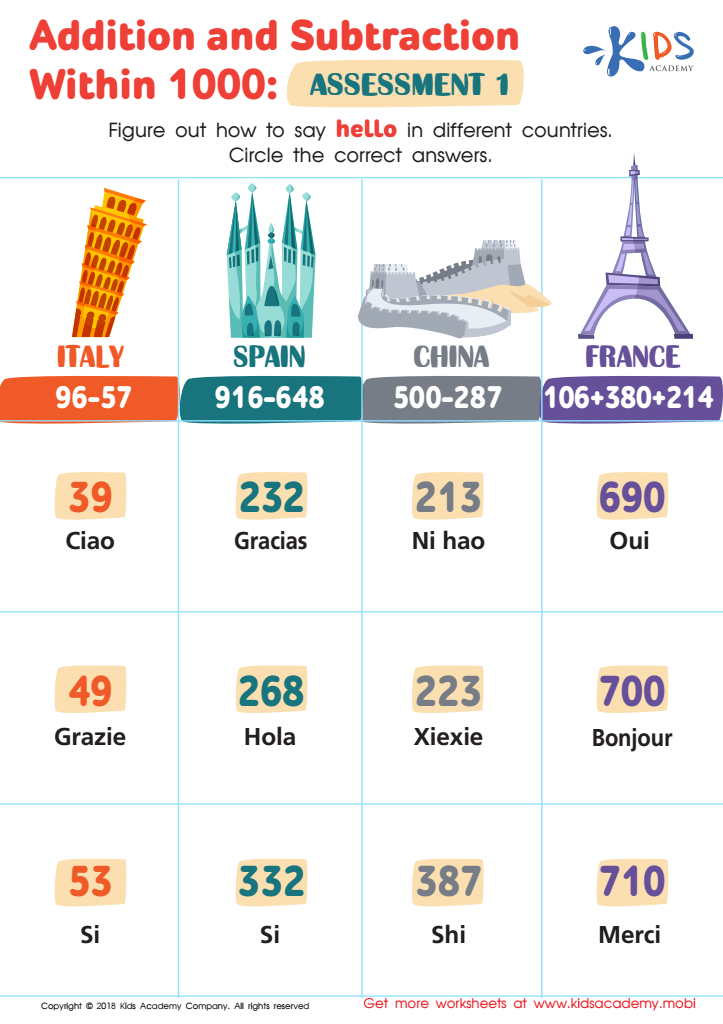

Addition and Subtraction Within 1000: Assessment 1 Worksheet
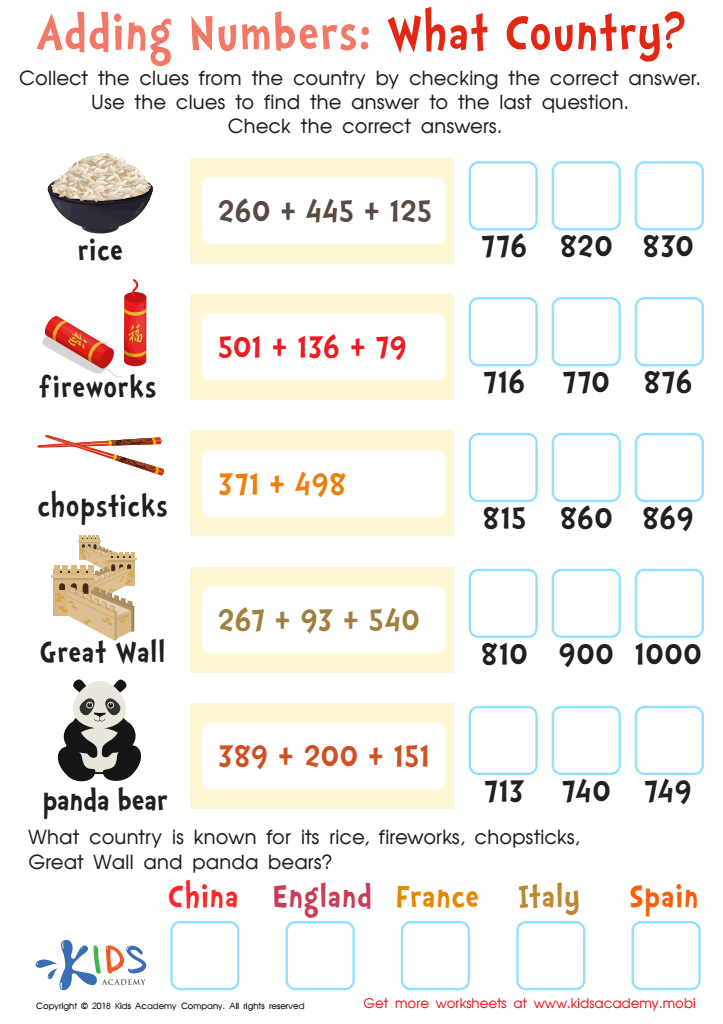

Adding Numbers: What Country Worksheet
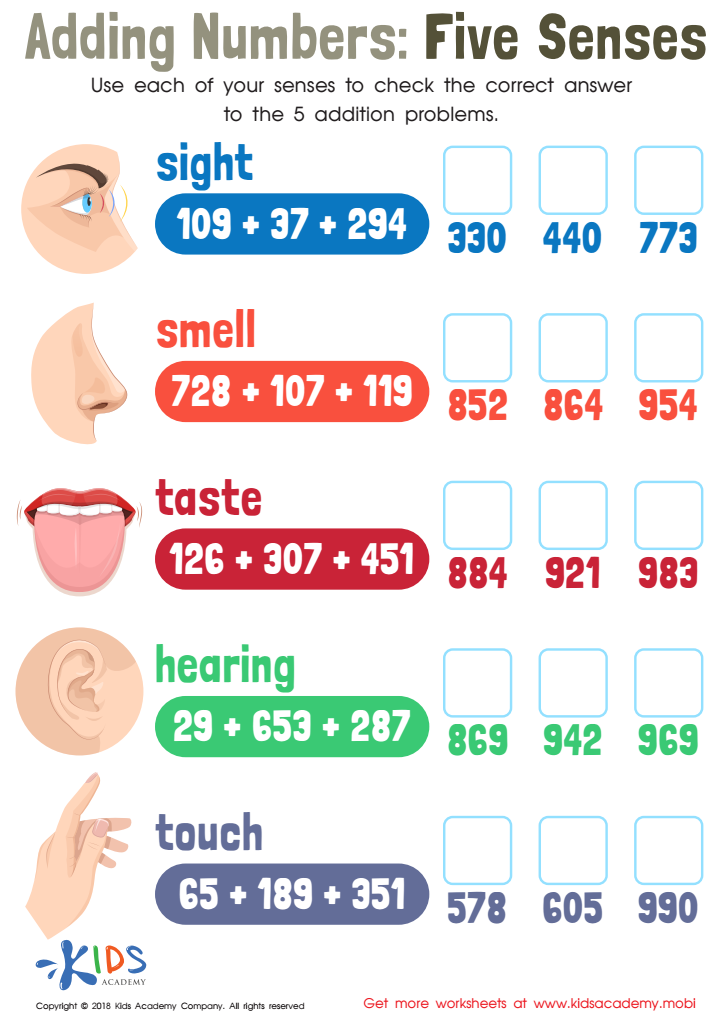

Adding Numbers: Five Senses Worksheet
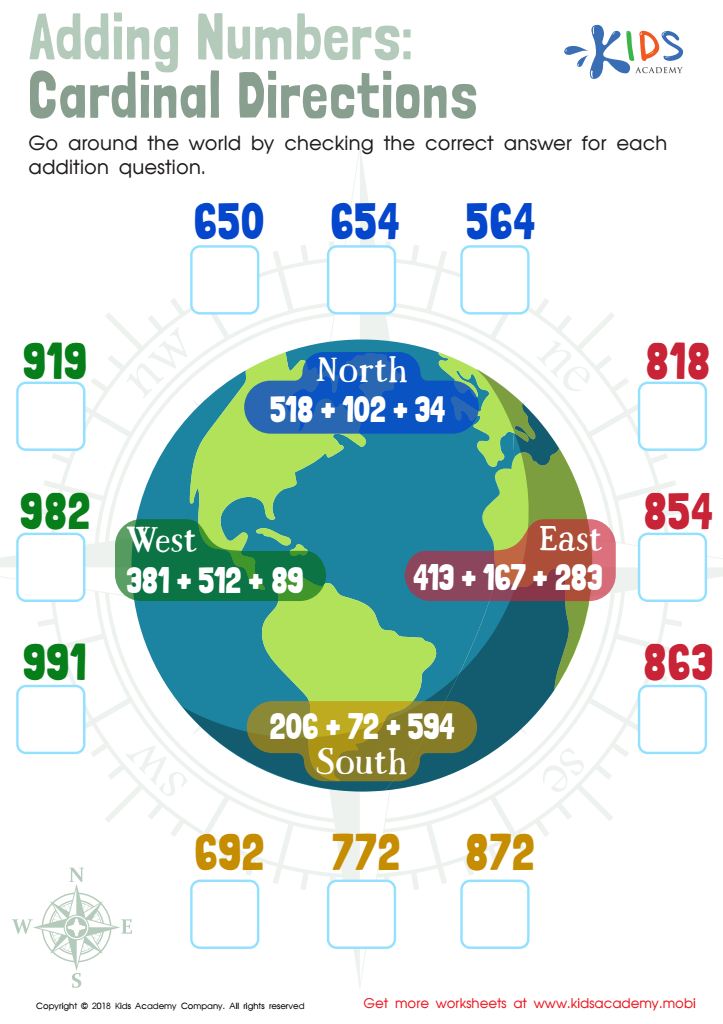

Adding Numbers: Cardinal Directions Worksheet
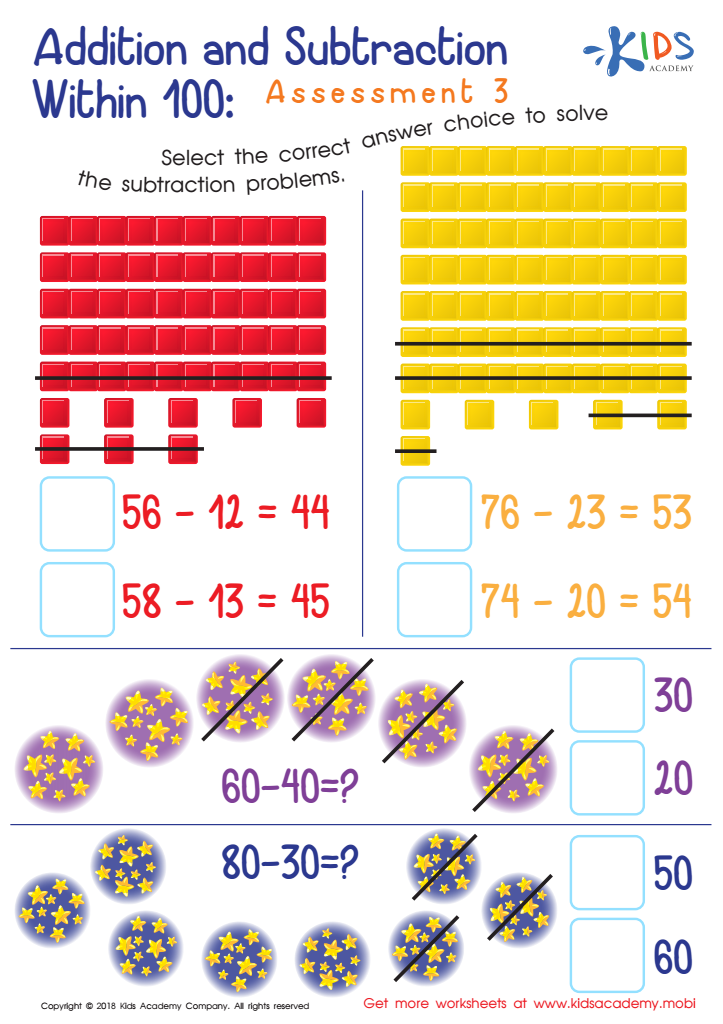

Addition and Subtraction Within 1: Assessment 3 Worksheet
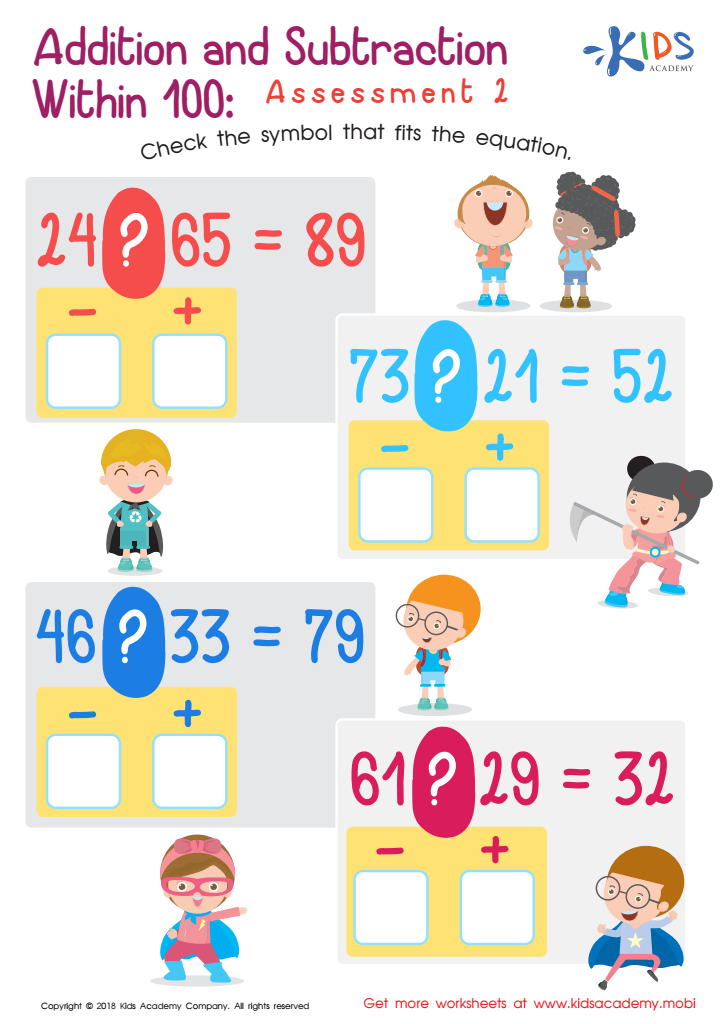

Addition and Subtraction Within 1: Assessment 2 Worksheet
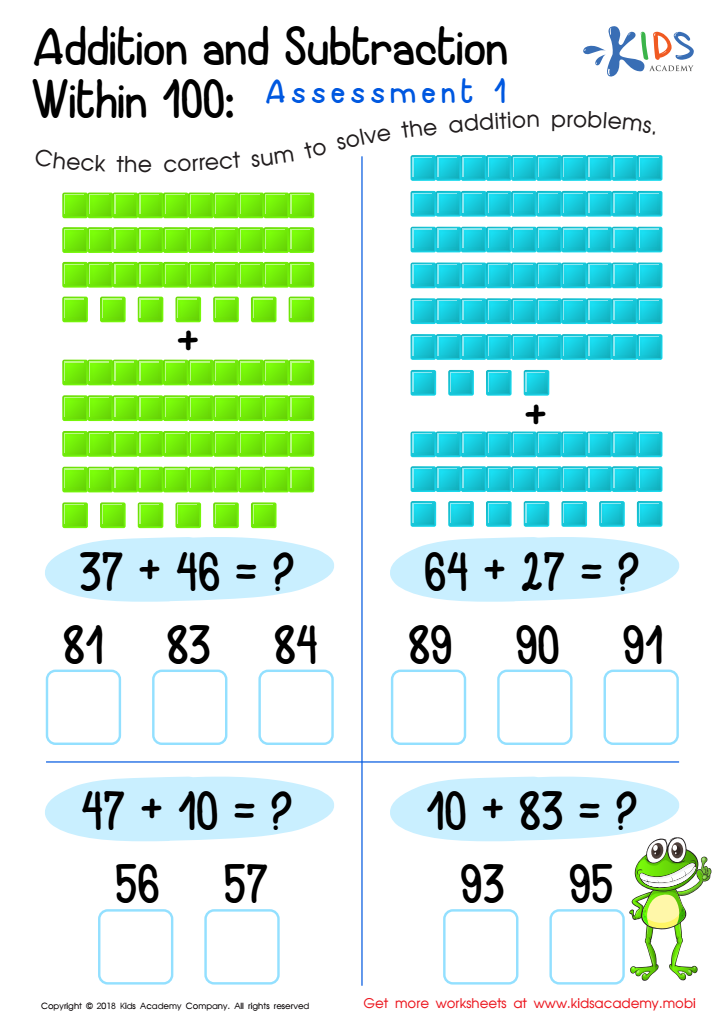

Addition and Subtraction Within 1: Assessment 1 Worksheet
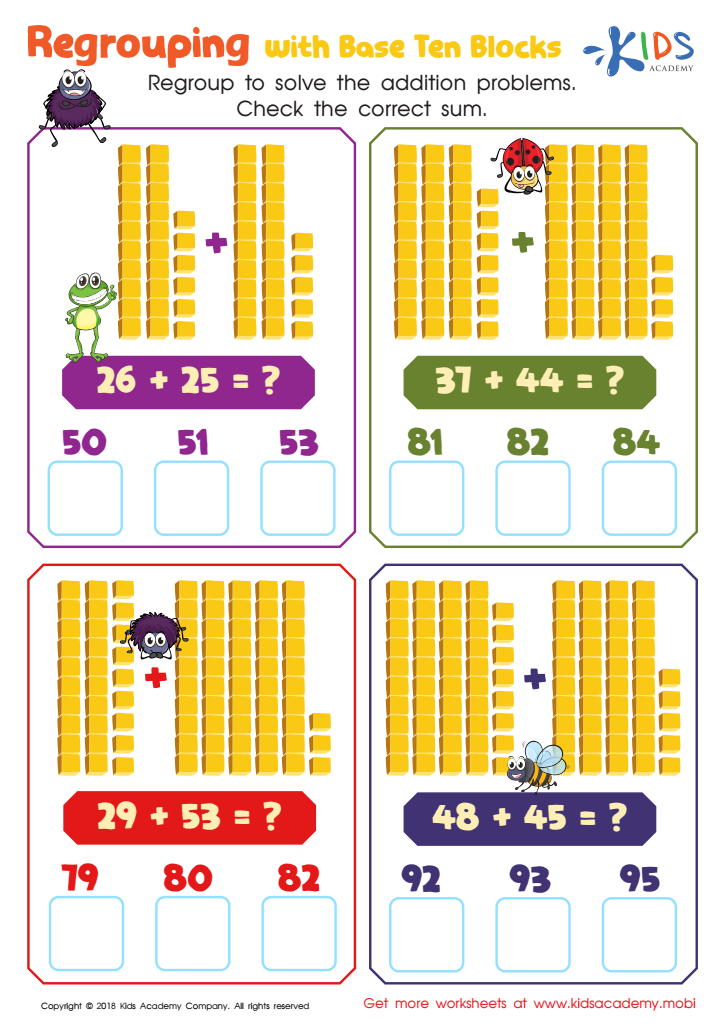

Regrouping With Base Ten Blocks Worksheet
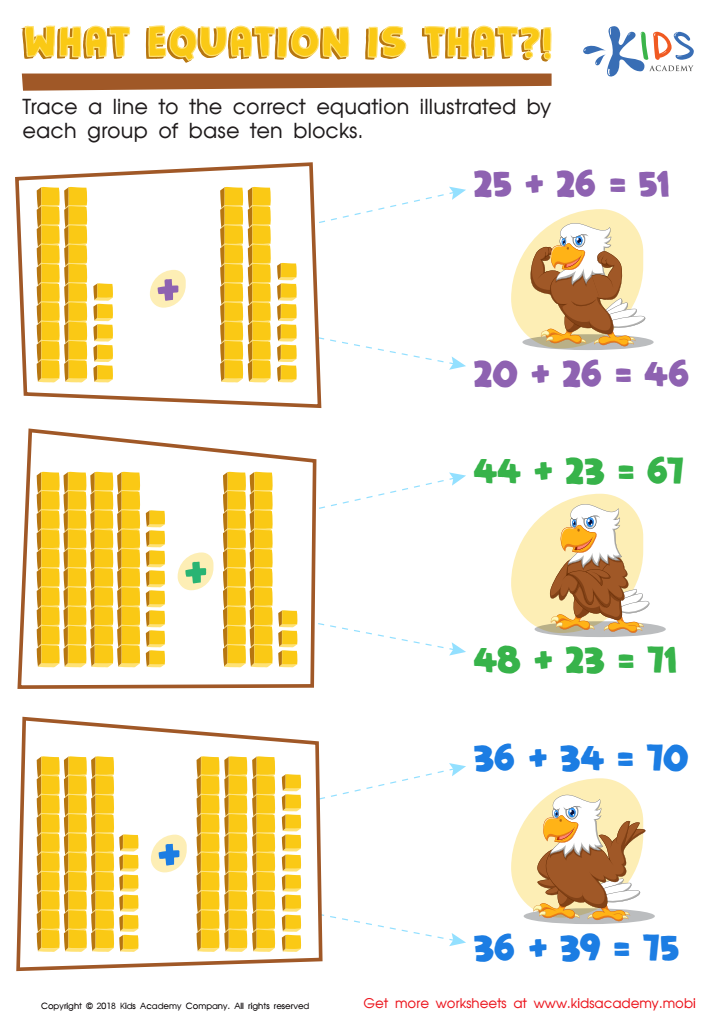

What Equation Is That? Worksheet
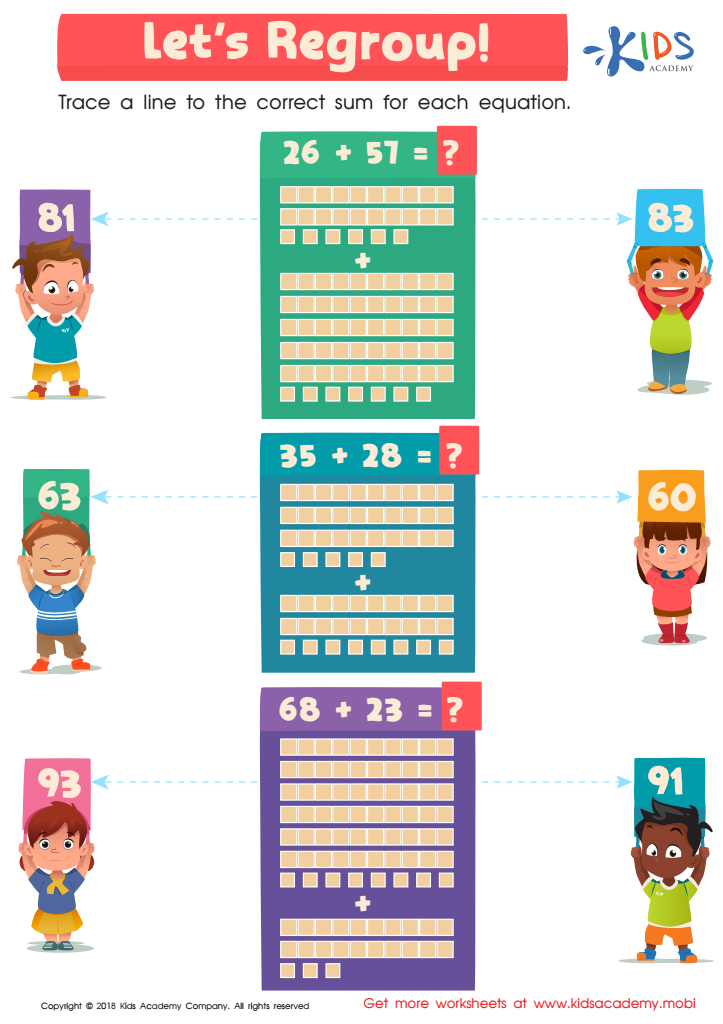

Let's Regroup Worksheet
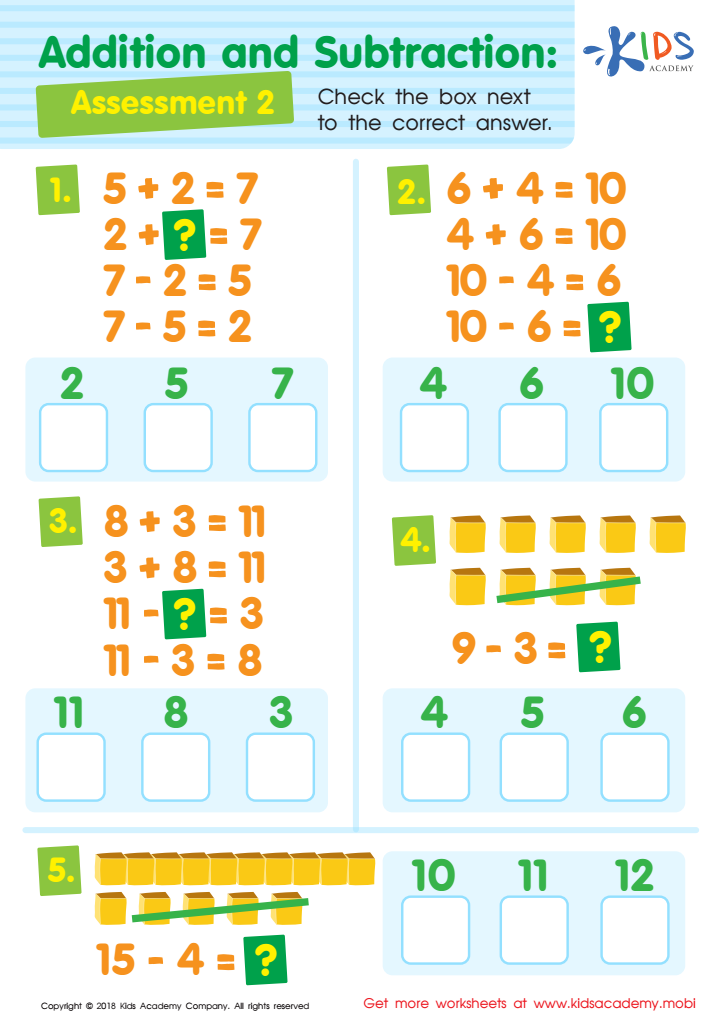

Addition and Subtraction Assessment 2 Worksheet
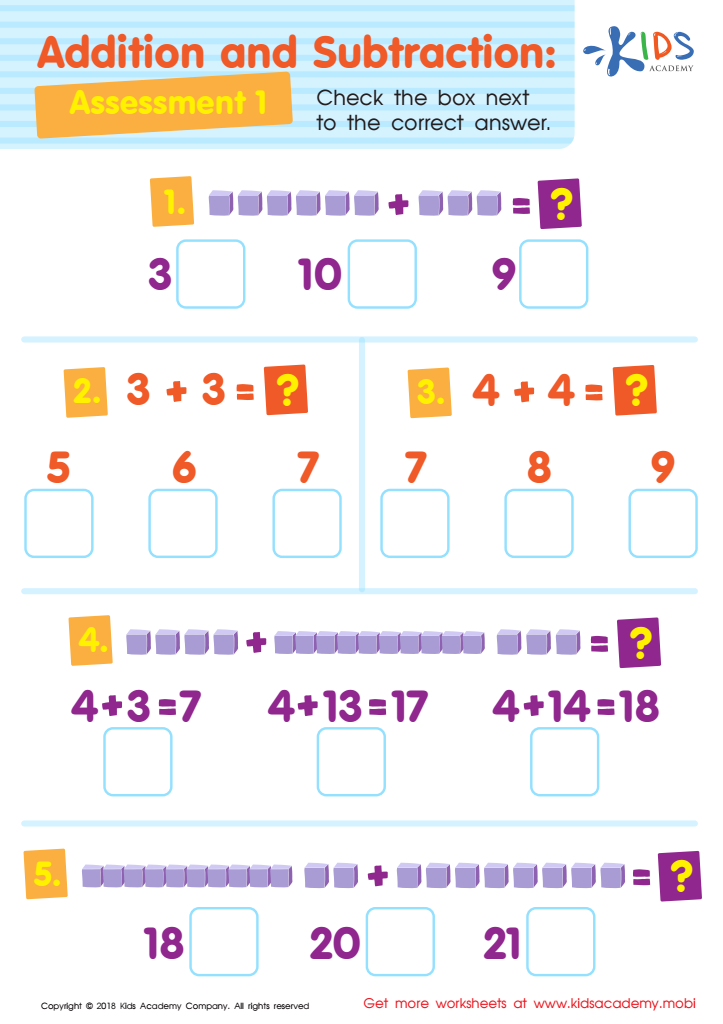

Addition and Subtraction Assessment 1 Worksheet
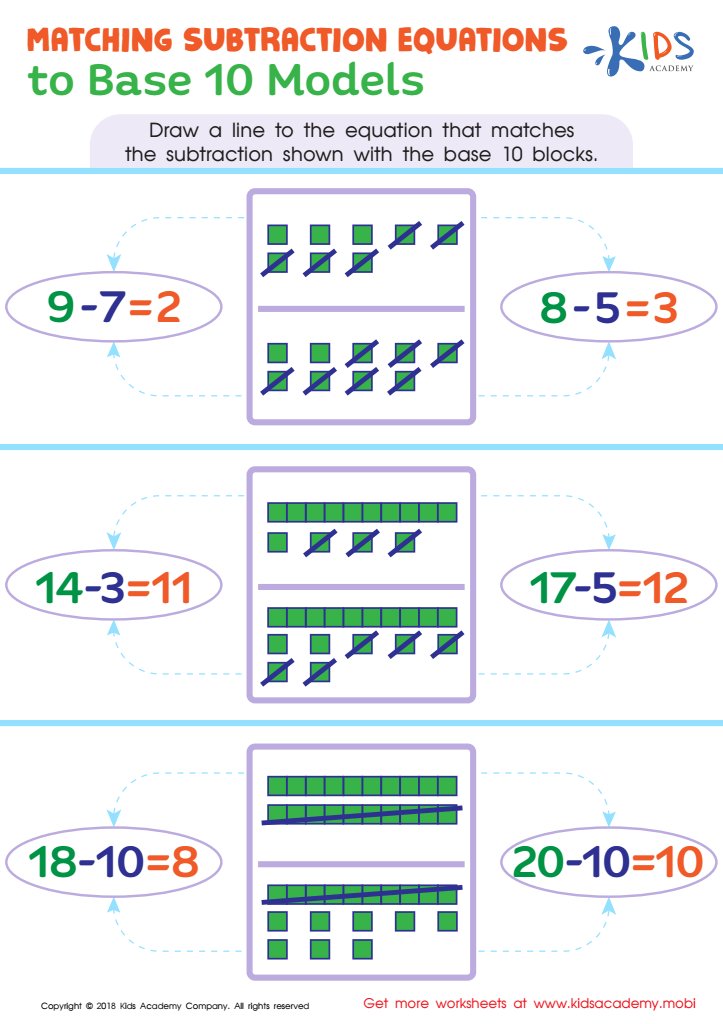

Matching Subtraction Equations To Base 10 Models Worksheet
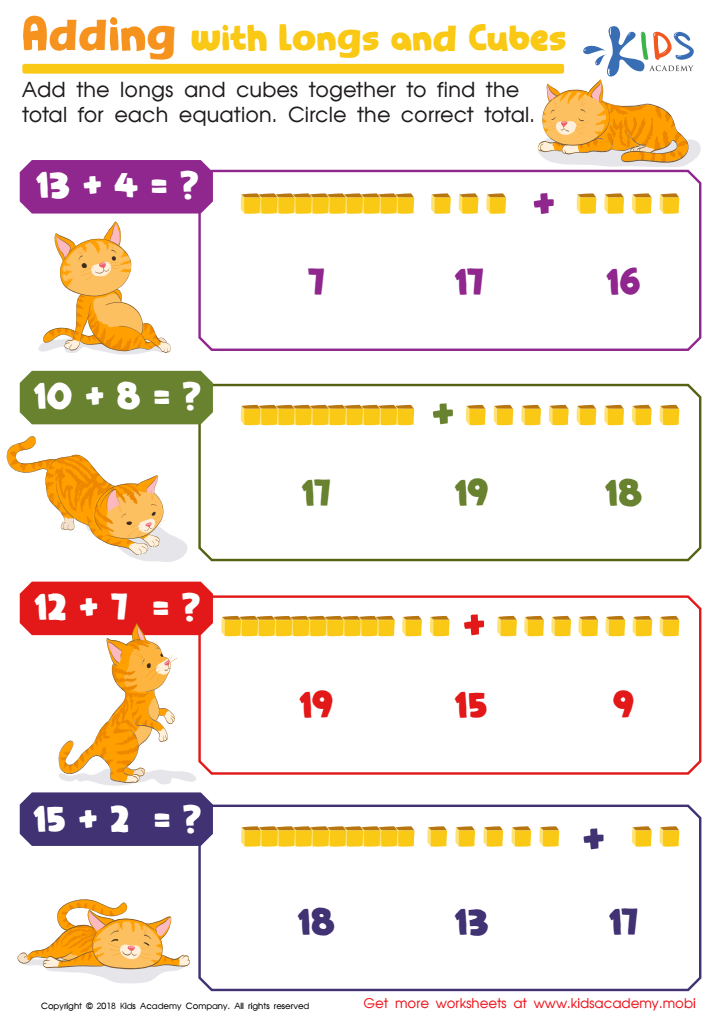

Adding With Longs and Cubes Worksheet
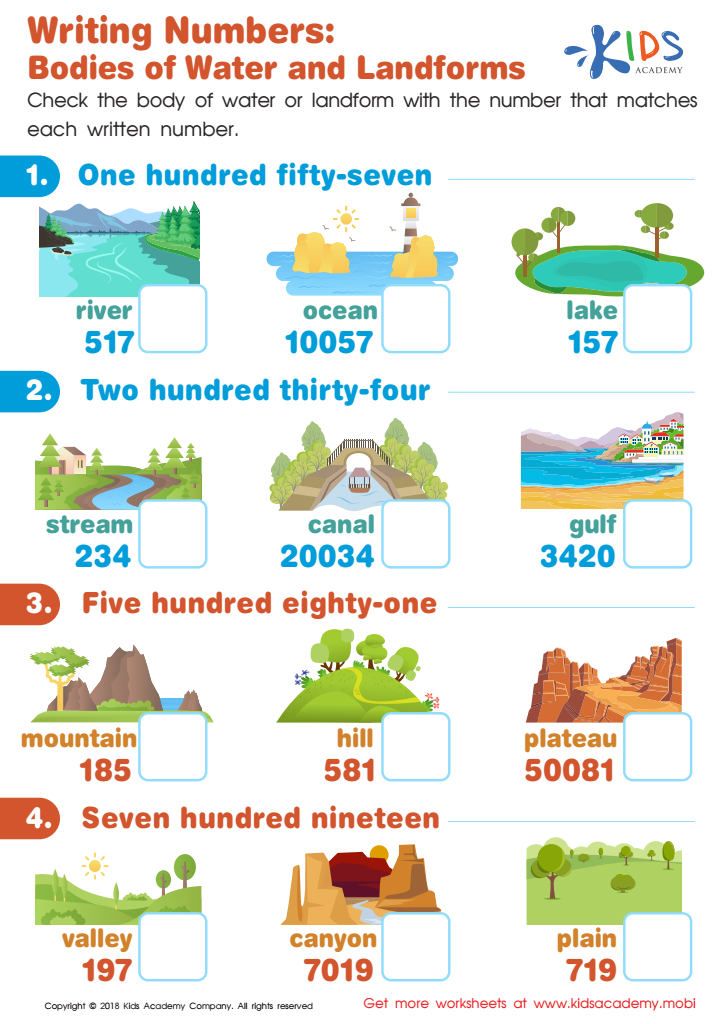

Bodies of Water and Landforms Writing Numbers Worksheet
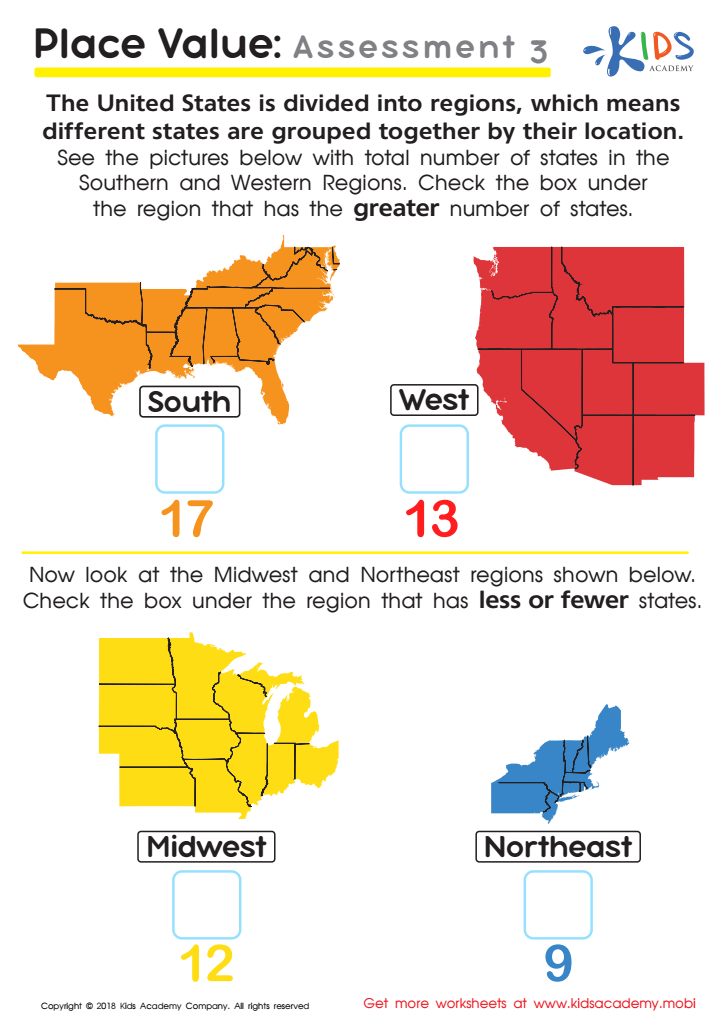

Place Value: Assessment 3 Worksheet
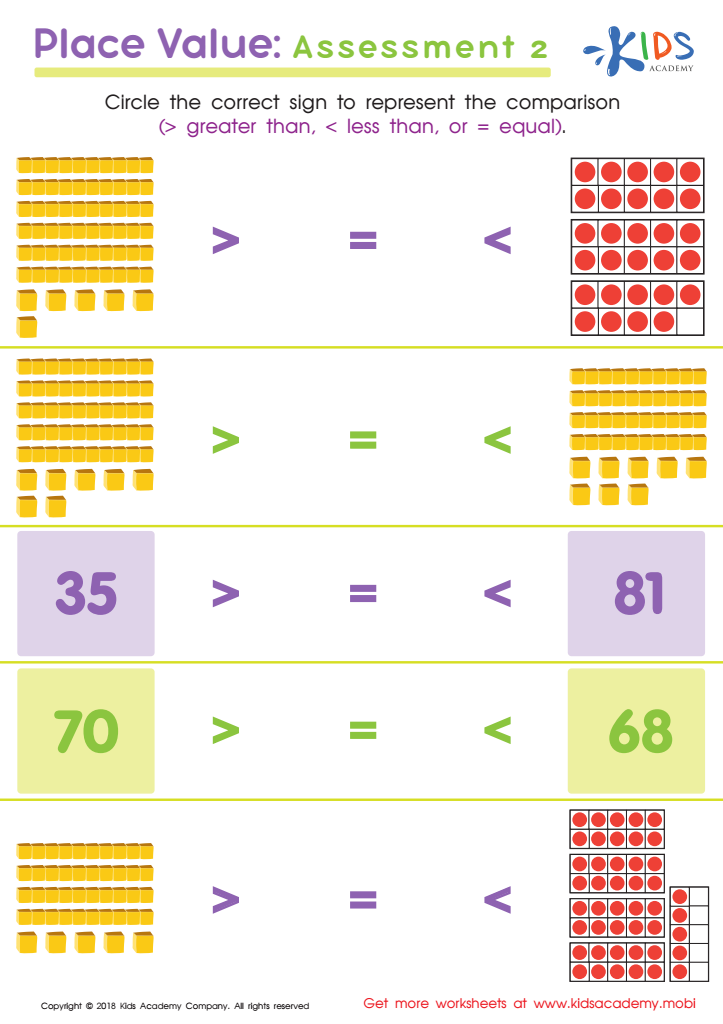

Place Value: Assessment 2 Worksheet
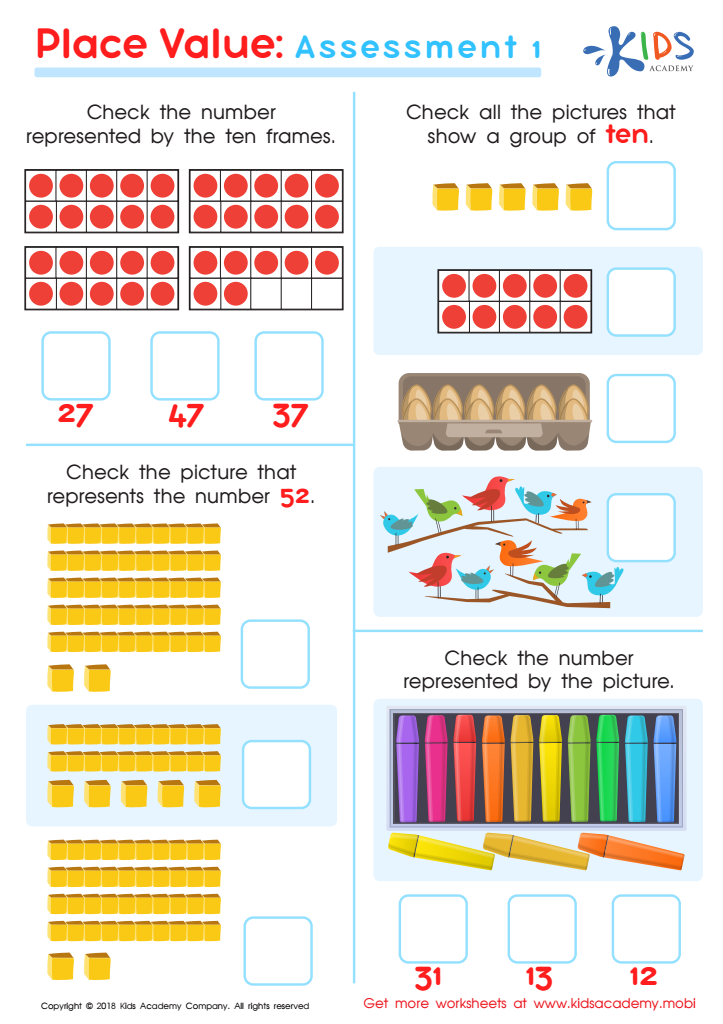

Place Value: Assessment 1 Worksheet
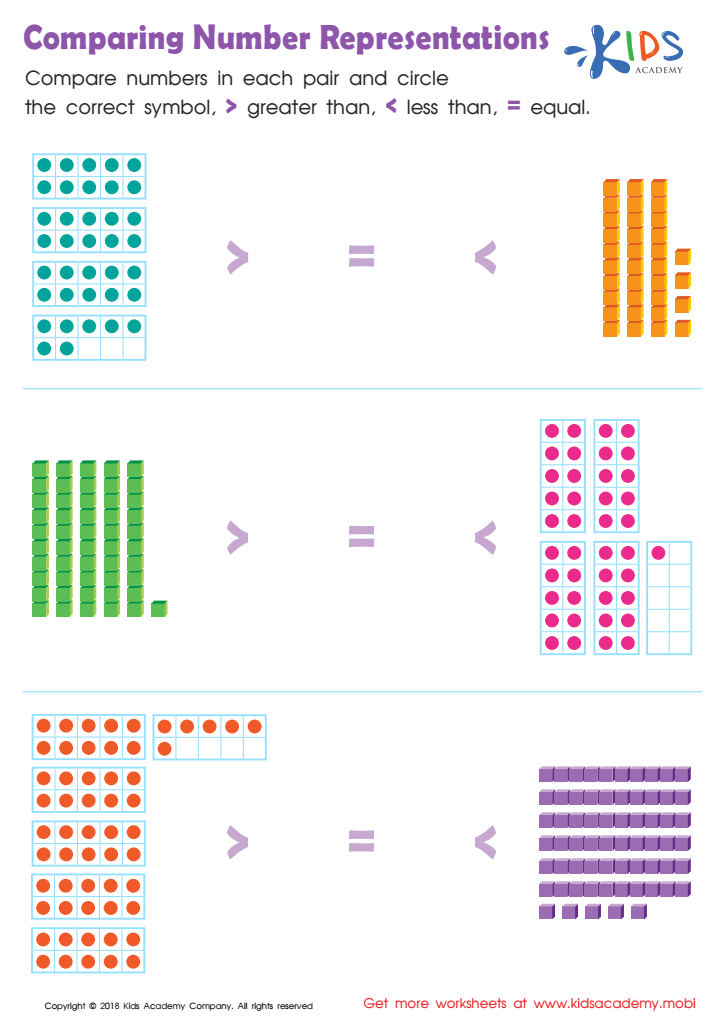

Comparing Number Representations Worksheet
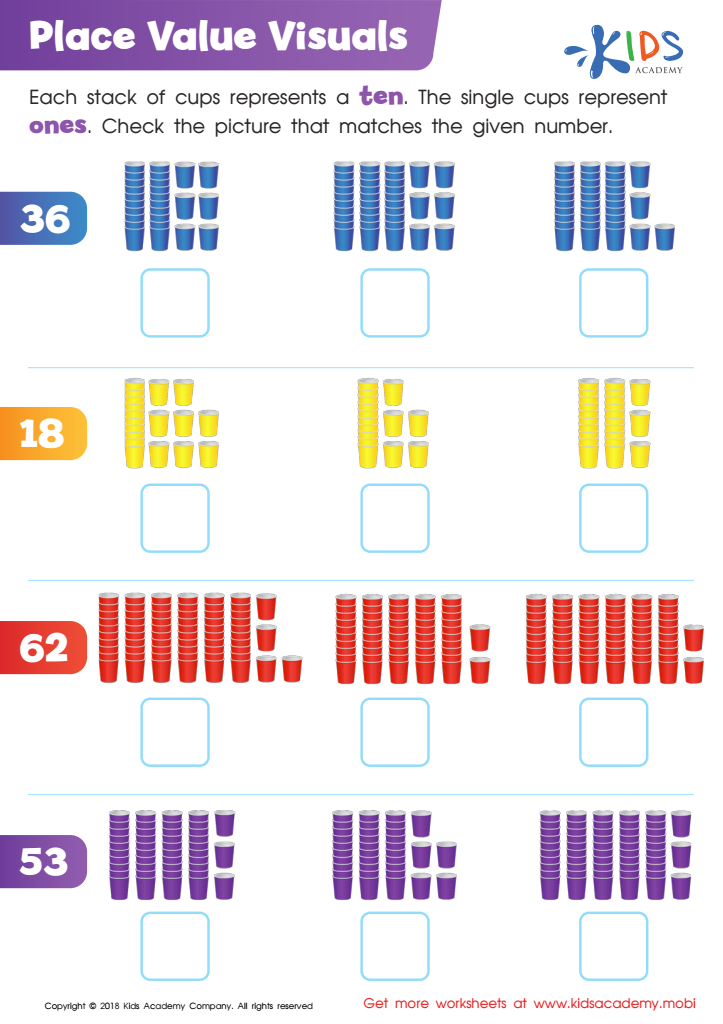

Place Value Visuals Worksheet
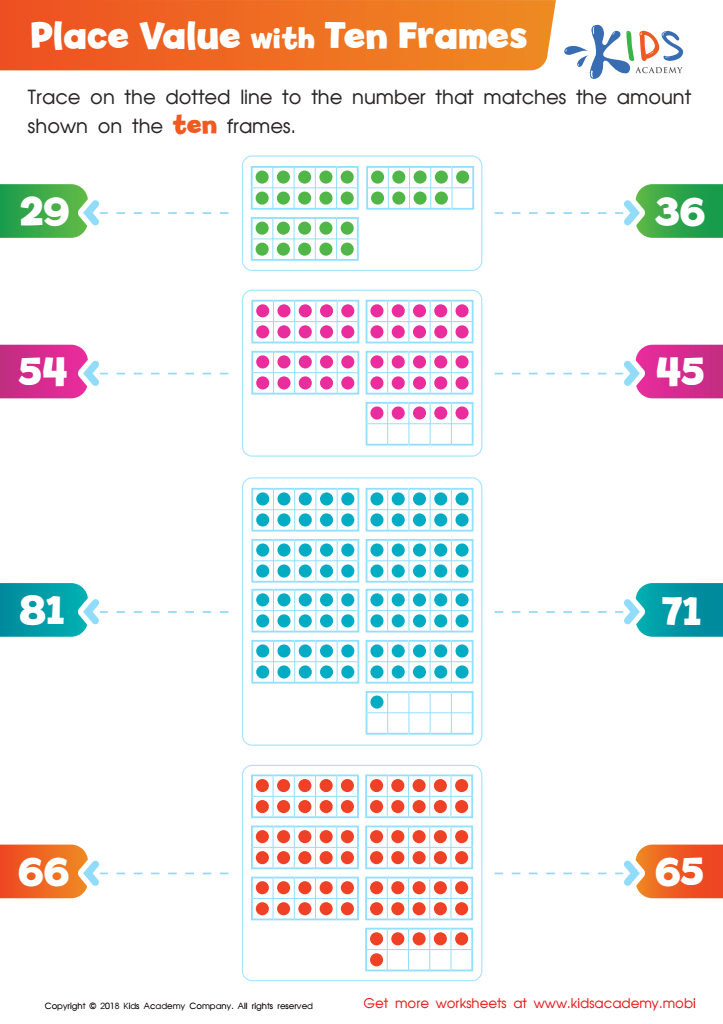

Place Values with Ten Frames Worksheet
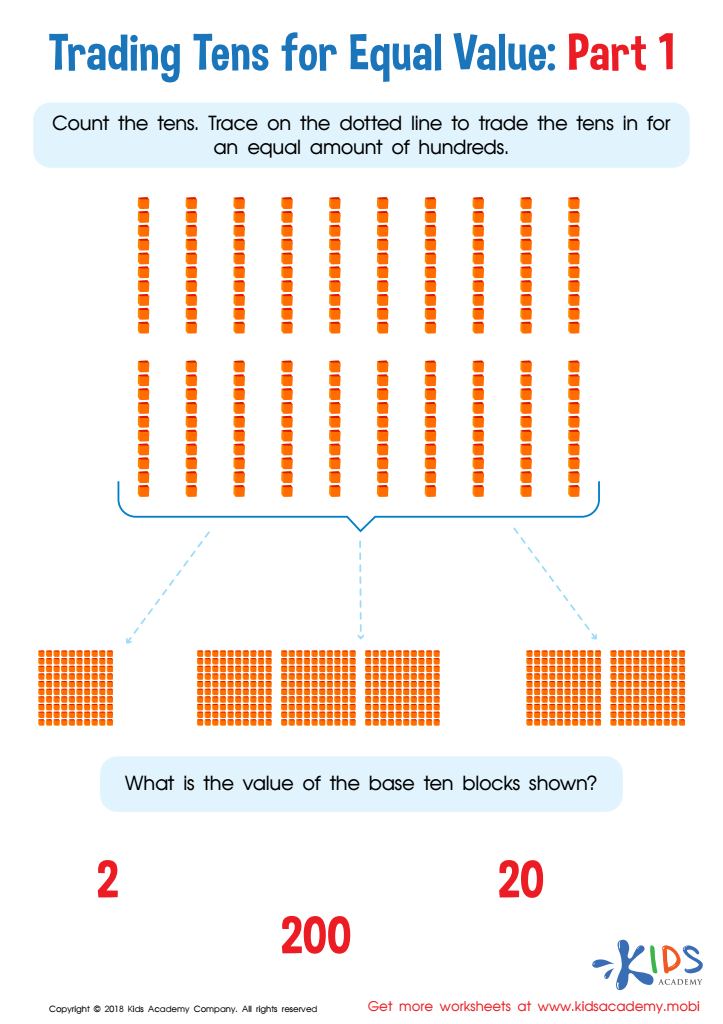

Trading Tens for Equal Value Worksheet: Part 1
Place value is a fundamental concept in mathematics that underpins a child's understanding of numeracy. For children aged 3-9, grasping place value early can significantly influence their overall mathematical abilities and confidence.
Firstly, place value refers to the value of each digit in a number, based on its position. Understanding that the digit 5 in 50 represents "fifty" and not just "five" helps young learners comprehend larger numbers and perform arithmetic operations more easily. It serves as a building block for more complex math skills such as addition, subtraction, multiplication, and division.
Secondly, early exposure to place value enhances number sense, which is the ability to understand, relate, and connect numbers. A strong number sense helps children make mental calculations and problem-solve more efficiently, fostering a positive attitude towards math.
Additionally, mastering place value aids in the understanding of the base-ten system, which is the foundation of our number system. This comprehension is crucial not only for academic success but also for practical everyday tasks such as telling time, measuring ingredients for a recipe, or budgeting pocket money.
Educators and parents play a pivotal role in providing opportunities for children to explore place value through tangible experiences, such as using blocks, beads, or digital games. Encouraging this understanding from a young age helps set children on a path to long-term mathematical competence and confidence.

 Assign to My Students
Assign to My Students
